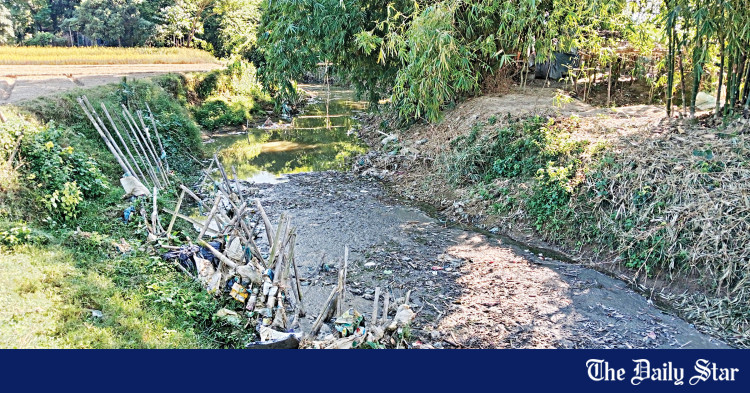- Copy to clipboard
- Thread starter
- #241

Govt committed to ensuring best use of climate budget: Rizwana
Rizwana, also adviser to the Ministry of Water Resources, highlighted several critical issues in climate governance and Bangladesh's priorities.
Govt committed to ensuring best use of climate budget: Rizwana

Environment Adviser Syeda Rizwana Hasan emphasised the government's commitment to ensuring the best use of the climate budget.
Rizwana, also adviser to the Ministry of Water Resources, highlighted several critical issues in climate governance and Bangladesh's priorities.
She was speaking at a seminar titled "Global Climate Negotiation Challenges and Priorities for Bangladesh" organised by the Bangladesh Institute of International and Strategic Studies (BIISS) in the capital today.
The adviser noted that the guidelines for allocating the Climate Change Trust Fund have been updated, with funds distributed more cautiously than ever.
She also stressed that international climate funds must be utilised properly to achieve meaningful outcomes. Ongoing efforts aim to identify priority sectors for climate investments. However, she warned that without reducing carbon emissions, global environmental damage cannot be mitigated, regardless of increased spending.
The adviser highlighted that various initiatives are being implemented to address Bangladesh's environmental challenges.
"We must rethink development strategies. If rivers and canals are filled, how can adaptation efforts succeed? Abandoning a consumerist lifestyle is necessary," she remarked.
She added that a task force has been formed to control air pollution, which will soon begin its activities. Measures are also being taken against polluters, and the use of single-use plastics is being discouraged.
Rizwana called for a focus on enhancing resilience, securing adequate adaptation funding, and ensuring transparency in fulfilling global commitments. She also urged equitable negotiations at global forums to amplify the voices of vulnerable communities and ensure developed nations fulfil their financial and technological commitments.
The seminar featured insights from key speakers, including Ambassador AFM Gousal Azam Sarker, Chairman of BIISS, and Major General Iftekhar Anis, Director General of BIISS.
The seminar brought together policymakers, researchers, climate experts, and diplomats to discuss pressing issues, including inadequate climate finance, slow progress on loss and damage mechanisms, and the need for stronger mitigation targets from major emitters.
Environment Adviser Syeda Rizwana Hasan emphasised the government's commitment to ensuring the best use of the climate budget.
Rizwana, also adviser to the Ministry of Water Resources, highlighted several critical issues in climate governance and Bangladesh's priorities.
She was speaking at a seminar titled "Global Climate Negotiation Challenges and Priorities for Bangladesh" organised by the Bangladesh Institute of International and Strategic Studies (BIISS) in the capital today.
The adviser noted that the guidelines for allocating the Climate Change Trust Fund have been updated, with funds distributed more cautiously than ever.
She also stressed that international climate funds must be utilised properly to achieve meaningful outcomes. Ongoing efforts aim to identify priority sectors for climate investments. However, she warned that without reducing carbon emissions, global environmental damage cannot be mitigated, regardless of increased spending.
The adviser highlighted that various initiatives are being implemented to address Bangladesh's environmental challenges.
"We must rethink development strategies. If rivers and canals are filled, how can adaptation efforts succeed? Abandoning a consumerist lifestyle is necessary," she remarked.
She added that a task force has been formed to control air pollution, which will soon begin its activities. Measures are also being taken against polluters, and the use of single-use plastics is being discouraged.
Rizwana called for a focus on enhancing resilience, securing adequate adaptation funding, and ensuring transparency in fulfilling global commitments. She also urged equitable negotiations at global forums to amplify the voices of vulnerable communities and ensure developed nations fulfil their financial and technological commitments.
The seminar featured insights from key speakers, including Ambassador AFM Gousal Azam Sarker, Chairman of BIISS, and Major General Iftekhar Anis, Director General of BIISS.
The seminar brought together policymakers, researchers, climate experts, and diplomats to discuss pressing issues, including inadequate climate finance, slow progress on loss and damage mechanisms, and the need for stronger mitigation targets from major emitters.












